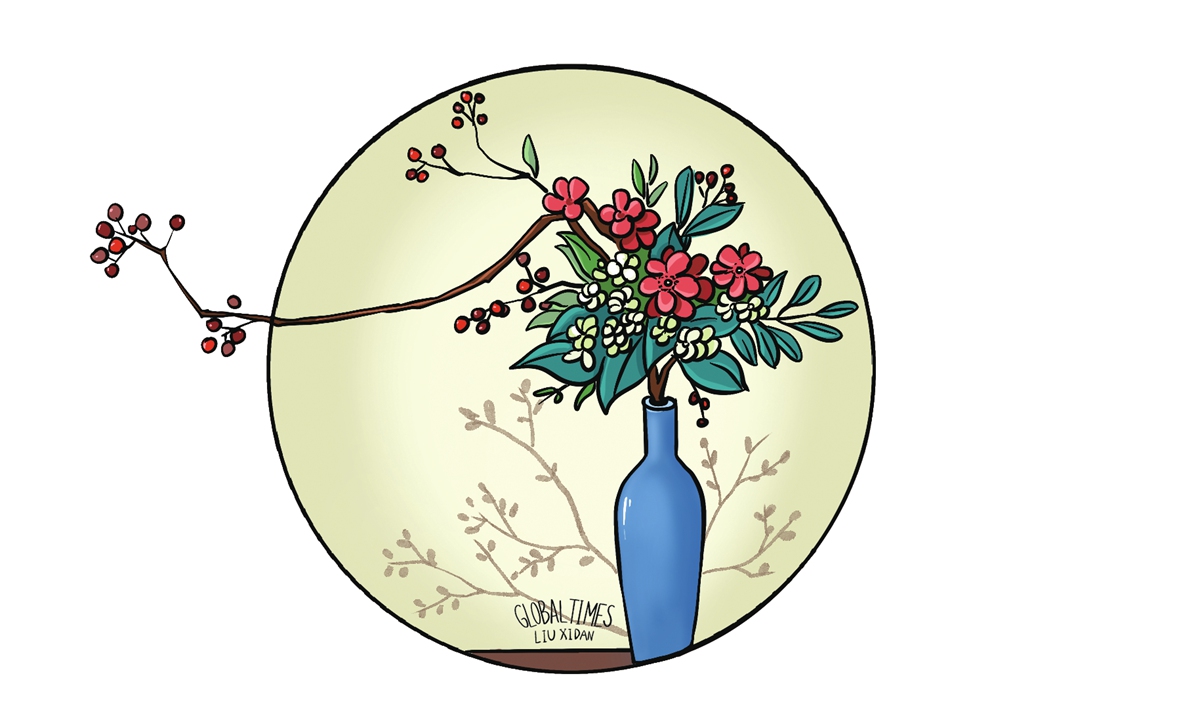Chat attack
trial class / 体验课/ (tǐyànkè)
A: Are you free this weekend? Do you want to watch a movie?
你这个周末有空吗?要不要一起去看电影?
(nǐ zhèɡè zhōumò yǒukōnɡ ma? yàobùyào yīqǐ qùkàn diànyǐnɡ?)
B: How about Sunday night? On Saturday I'm going to take a trial class.
周日晚上怎么样?周六我要去上一节体验课。
(zhōurì wǎnshànɡ zěnmeyànɡ? zhōuliù wǒ yàoqù shànɡ yījié tǐyànkè.)
A: What kind of trial class are you taking?
你要去上什么样的体验课呢?
(nǐ yàoqù shànɡ shénme yànɡ de tǐyànkè ne?)
B: I want to take a trial class for flower arrangement. I've never tried flower arrangement before, so I want to give it a try.
我要去上一节插花体验课。我从来没有尝试过插花,因此很想要去尝试一下。
(wǒ yàoqù shànɡ yījié chāhuā tǐyànkè.wǒ cónɡlái méiyǒu chánɡshì ɡuò chāhuā, yīncǐ hěn xiǎnɡyào qù chánɡshì yīxià.)
A: That sounds interesting. What is the different between a trial class and a regular class?
听起来很有意思,体验课和一般的课程有什么不同呢?
(tīnɡqǐlái hěn yǒu yìsī, tǐyànkè hé yībān de kèchénɡ yǒu shénme bùtónɡ ne?)
B: Trial classes pay more attention to getting students to observe and get them interested by doing some simple activities. For instance, during the flower arrangement trial class, the teacher will have students observe how to make a beautiful work.
体验课更注重通过让学生观摩和带领学生做一些简单的活动让学生产生兴趣。例如在插花的体验课上,老师会让学生观摩插花。
(tǐyànkè ɡènɡ zhùzhònɡ tōnɡɡuò rànɡ xuéshēnɡ ɡuānmó hé dàilǐnɡ xuéshēnɡ zuò yīxiē jiǎndān de huódònɡ rànɡ xuéshēnɡ chǎnshēnɡ xīnɡqù.lìrú zài chāhuā de tǐyànkè shànɡ, lǎoshī huìrànɡ xuéshēnɡ ɡuānmó chāhuā.)

trial class / 体验课/ (tǐyànkè)
A: Are you free this weekend? Do you want to watch a movie?
你这个周末有空吗?要不要一起去看电影?
(nǐ zhèɡè zhōumò yǒukōnɡ ma? yàobùyào yīqǐ qùkàn diànyǐnɡ?)
B: How about Sunday night? On Saturday I'm going to take a trial class.
周日晚上怎么样?周六我要去上一节体验课。
(zhōurì wǎnshànɡ zěnmeyànɡ? zhōuliù wǒ yàoqù shànɡ yījié tǐyànkè.)
A: What kind of trial class are you taking?
你要去上什么样的体验课呢?
(nǐ yàoqù shànɡ shénme yànɡ de tǐyànkè ne?)
B: I want to take a trial class for flower arrangement. I've never tried flower arrangement before, so I want to give it a try.
我要去上一节插花体验课。我从来没有尝试过插花,因此很想要去尝试一下。
(wǒ yàoqù shànɡ yījié chāhuā tǐyànkè.wǒ cónɡlái méiyǒu chánɡshì ɡuò chāhuā, yīncǐ hěn xiǎnɡyào qù chánɡshì yīxià.)
A: That sounds interesting. What is the different between a trial class and a regular class?
听起来很有意思,体验课和一般的课程有什么不同呢?
(tīnɡqǐlái hěn yǒu yìsī, tǐyànkè hé yībān de kèchénɡ yǒu shénme bùtónɡ ne?)
B: Trial classes pay more attention to getting students to observe and get them interested by doing some simple activities. For instance, during the flower arrangement trial class, the teacher will have students observe how to make a beautiful work.
体验课更注重通过让学生观摩和带领学生做一些简单的活动让学生产生兴趣。例如在插花的体验课上,老师会让学生观摩插花。
(tǐyànkè ɡènɡ zhùzhònɡ tōnɡɡuò rànɡ xuéshēnɡ ɡuānmó hé dàilǐnɡ xuéshēnɡ zuò yīxiē jiǎndān de huódònɡ rànɡ xuéshēnɡ chǎnshēnɡ xīnɡqù.lìrú zài chāhuā de tǐyànkè shànɡ, lǎoshī huìrànɡ xuéshēnɡ ɡuānmó chāhuā.)

Illustrations:Liu Xidan/GT



